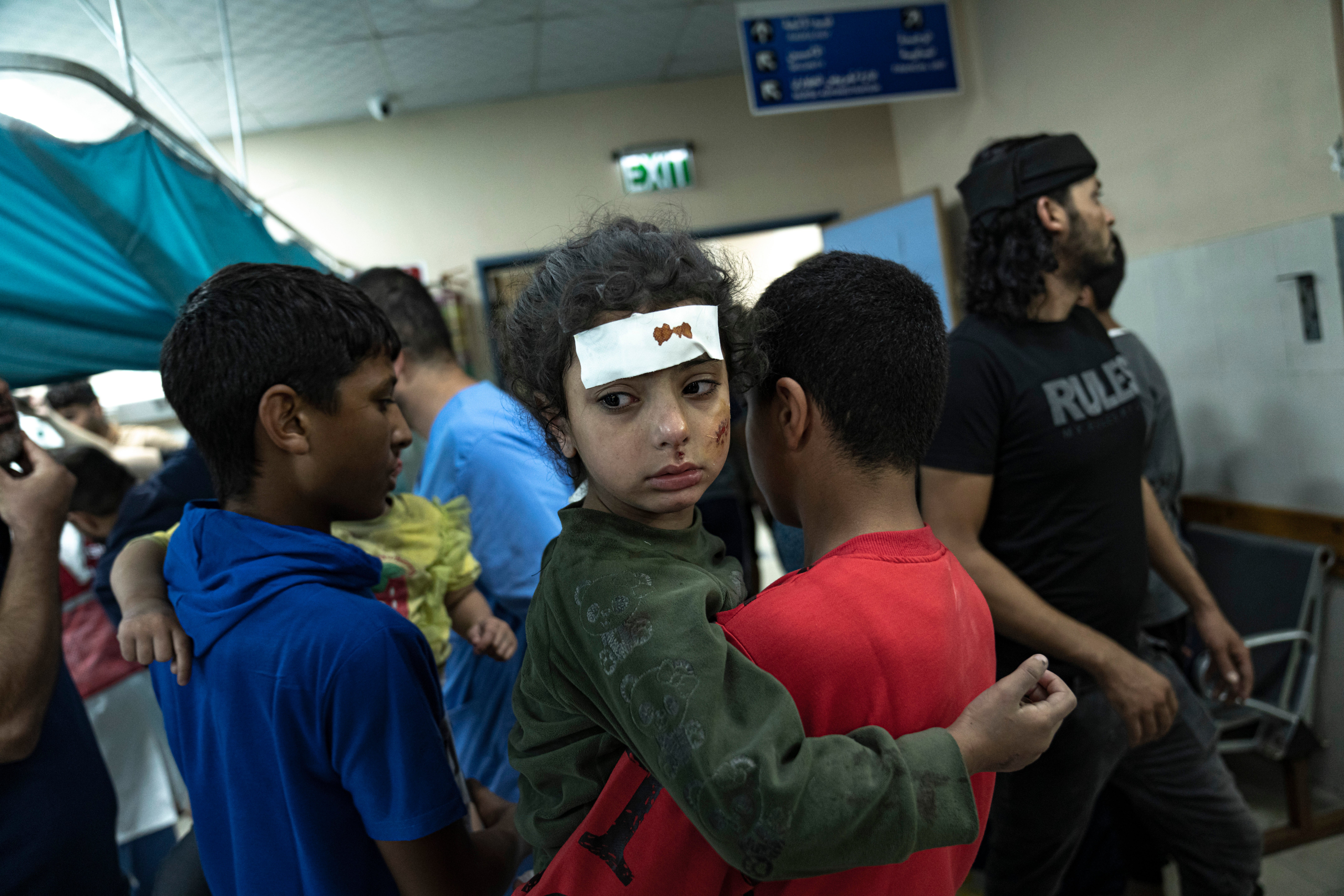Hamas is guilty as charged, but is Israel committing war crimes?
There is no doubt the heinous massacres carried out by Hamas in Israeli communities were war crimes, writes Donald Macintyre. But is Israel’s response proportionate, legal or – in the eyes of the world – legitimate?


Israel’s ambassador to the UK – Tzipi Hotovely – made a robust argument on the BBC Today programme on Monday that Israel is acting fully within international law in its tightened and draconian blockade of Gaza, its seemingly relentless bombing and its orders to 1.1 million Gazans to leave their homes for the south of the territory.
It was also, by implication, a pre-emptive defence of what may happen once a ground invasion starts at a cost to Palestinian lives – of civilians as well as militants – which is impossible to predict.
There is no doubt whatsoever that the heinous massacre carried out by Hamas in Israeli communities on 7 October was a war crime, brutally targeting civilians.
A wide range of established human rights organisations – including ones sympathetic to the Palestinians – have emphatically acknowledged this. Cornell Law School professor Jens David Ohlin has written that the Hamas attacks amount both to war crimes and crimes against humanity under the International Criminal Court’s [ICC] founding Rome Statute.
It is, however, well known that “collective punishment” – or avenging such an act, however hideous – is not itself protected in international law. Moreover, Jan Egeland, a Norwegian former senior UN official with extensive experience of the region, has accused it of committing a “war crime” by ordering northern Gazans to move south.
Indeed, the International Committee of the Red Cross, which usually weighs its words carefully, has also said that the evacuation order is “not compatible with humanitarian law”, and Amnesty International has made similar accusations about Israel’s blockade of supplies of food, fuel and power supply to the Gaza Strip.
Hotovely was certainly right to point out that the allies’ devastating bombing of German cities in the Second World War killed hundreds of thousands of civilians. But while some experts believe those raids will not have conformed to present-day international law, that body of law did not exist then, as it is today. Indeed, it was not until 1949 that the Geneva Convention (and its successor conventions) – chiefly aimed at protecting civilians in times of conflict – was agreed upon by all member states of the UN.
International law does not, of course, say that the killing or displacement – provided it is temporary, as many northern Gazans fear it will not be – of any civilians in an armed conflict is a violation. But it does stipulate that such acts must be militarily necessary and proportionate to the threat it is aimed at eliminating.
Israel regularly makes the point that Hamas rockets are often launched from residential areas and it is virtually impossible to target them without risking civilian lives. But part of the present debate – on the law, rather than the more subjective criterion of ethics – is whether the wholesale destruction currently being wrought in Gaza can be justified as proportionate or militarily necessary.
Some of this is, admittedly, a matter of dispute among international lawyers, including in the US or in Israel, depending on their jurisprudential – and sometimes political – views.
The only formal judgement on this can be made by the ICC– to which Israel (like the US, but unlike Britain) is not a signatory.
As it happens, the ICC had already formally opened an investigation into both its and Hamas’s conduct in the 2014 Gaza war (which involved a much lesser onslaught than the present one, as it is turning out).
ICC prosecutors decided back in 2021 that there was a prima facie case that Israel, Hamas and other armed nations had all committed violations of international law during the conflict. But the ICC is now prioritising its enquiry into Russia’s unprovoked invasion – and has infuriated Palestinian civil society leaders by being notably slow in pursuing the investigation.
All of this is above and beyond the wider systemic issues: settlements in the occupied West Bank, which most Western governments regard as illegal in international law – and a 15-year closure of Gaza, which many experts similarly see as a violation.
International law is profoundly important, but it is never quite the whole story. Even if the unprecedented level of suffering currently being inflicted on Gazan civilians, including women and children were legal – and Hotovely’s insistence that it is will be widely challenged – there is also the issue of legitimacy, as well as legality.
And that will finally be decided in the court of public opinion.






Join our commenting forum
Join thought-provoking conversations, follow other Independent readers and see their replies
Comments